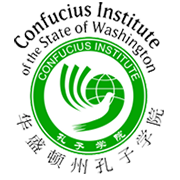Chinese Literacy Project
CIWA launched the Chinese Literacy Project in Spring of 2016 in Seattle’s Mandarin Dual Language Immersion Programs at Beacon Hill International School, Dearborn Park International School, and Mercer International Middle School. (To learn more about these schools, visit Asia Society CELIN > Seattle Mandarin Immersion Programs (2015).)
Our goal is to create a set of resources and curriculum frameworks that will benefit these Mandarin Dual Language Immersion Programs, but also be shared across Washington state and the United States.
Vision for Literacy
Every elementary school program realizes that children will not become fluent readers and writers of English unless they are spending time outside of school reading for pleasure and information. Many schools have a reading slogan, such as “Read 15 minutes a day,” to remind children and their families of how important it is to read on a regular basis at home and at school. To achieve literacy in another language, especially a language like Chinese, students MUST spend time beyond the school day interacting with Chinese texts, reading for pleasure and for information.
But, how do we make this happen?
Books and Reading Materials
Students need access to engaging reading materials – at a level they can comprehend – in order to engage in reading beyond classroom activities. We need to provide our Mandarin teachers and school libraries an ample supply of books and reading materials that students can use at school and take home with them (sometimes to keep). And we need a system for getting them to students, keeping track of what students have read (from grades K-8, not just year by year), and sharing resources across schools so that we can provide greater variety at lower cost.
We have piloted this resource to help us determine what level students are reading at and what books (both online and print) would be a good match for them. We have purchased Level Chinese accounts (and accounts to online Joy Reader) for students from grades 1-12 in Seattle’s International Schools that offer Mandarin.
- Level Chinese
- Level Chinese Non-Fiction Book Series
Articulated Literacy Instruction
In addition to access to materials and books, students need a way to identify which materials and books are appropriate for them so that they’re reading things that they can understand and enjoy. In order to provide that guidance, our Mandarin teachers at all levels need a clear sense of how students are developing literacy across the years. We need to make explicit the language and literacy goals for each grade level and develop or identify assessments that will help teachers and students know where they are along the continuum.
We are looking at several resources for helping us articulate literacy instruction, in particular:
- Level Chinese – this tool helps us identify books/materials appropriate for different reading levels, plus it provides instructional lessons based on the Common Core State Standards, that can help teachers provided targeted instructions to students in those specific areas where they need it
- Mandarin Matrix – the Dual Language Immersion book series, developed with the University of Utah Confucius Institute, is available for grades K-2 and expanding to grade 6
- Better Immersion (from Better Chinese) – this program was designed to support literacy development in Dual Language Immersion classes where students are also learning content, such as Math, Science, and Social Studies
Summer Reading Programs
We can’t afford to lose an entire summer between school years. Just like public libraries engage in summer reading programs that motivate students to set goals and track their reading, we need to do the same. And we need to have materials available – whether it’s summer reading kits from school or more books available at the local public libraries. We need to recognize students for their efforts and nudge reluctant readers to participate too.
We worked on several summer reading programs in 2016 and 2017:
- Pollyanna Wang coordinated a program within the Seattle Chinese Camp, taught by teachers in the Seattle STARTALK Teacher Program
- Helen Yung coordinated a Chinese Summer Reading Club, primarily aimed at students in rising grades 6-8 at Mercer International Middle School
- Stephanie Chen from Beacon Hill International School coordinated a Chinese Summer Reading Club using Level Chinese and Joy Reader accounts through Level Chinese
Other Resources:
Asia Society’s Chinese Early Language and Immersion Network (CELIN) has published a series of briefs on Chinese Language Learning and Teaching some of which relate specifically to literacy development in Chinese.
The CELIN Briefs provide a synthesis of research, experience, and strategies in a specific topic area, with available references and resources. The authors of the briefs are scholars and experienced educators who are recognized experts in the field of Chinese language education. The CELIN Briefs are available in both English and Chinese. A flyer with succinct information about the briefs can also be downloaded and shared.
- “Developing Initial Literacy in Chinese” — Download this brief in English or Chinese.
For more information about CIWA’s Chinese Literacy Project, contact Dr. Michele Anciaux Aoki, Director of the CIWA Education Center in Seattle Public Schools maaoki@seattleschools.org.



